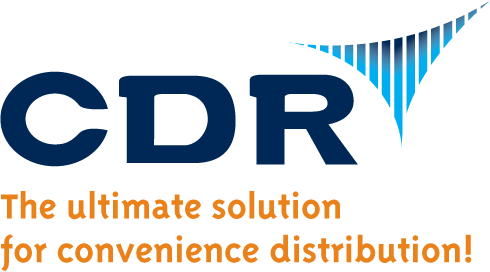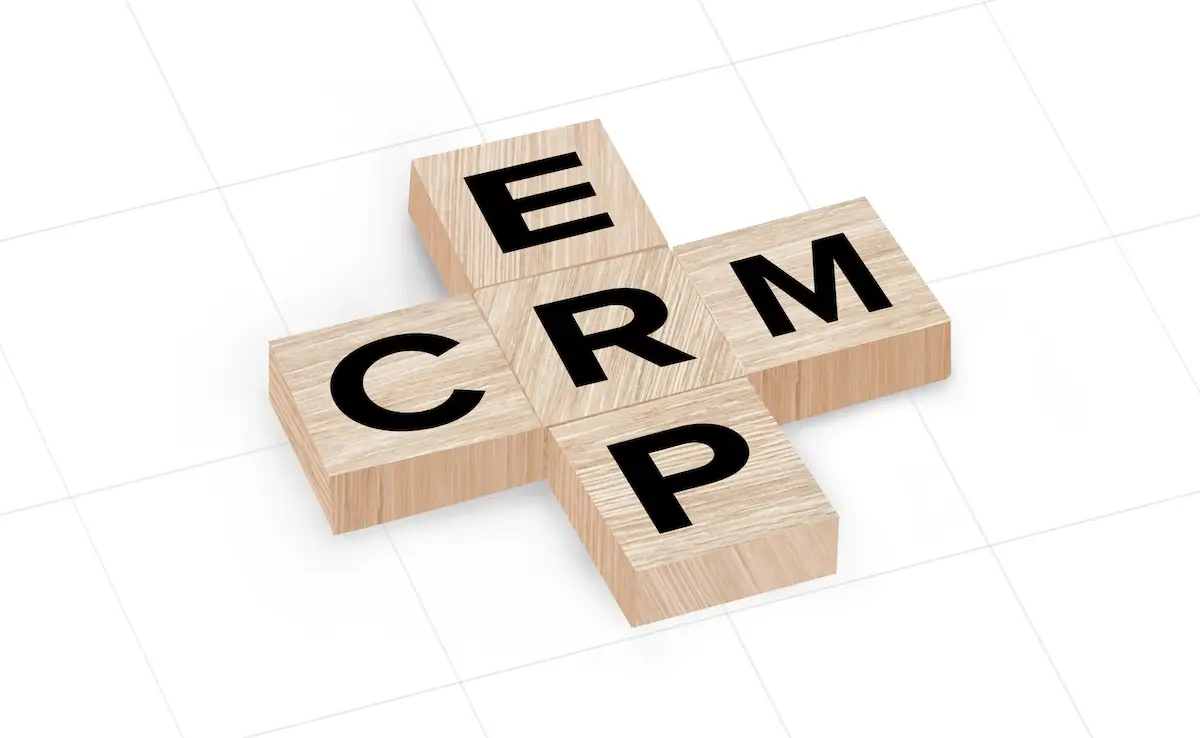Wondering how CRM ERP integration works and whether it’s right for your distribution business? This guide explores the benefits of integrating customer relationship management (CRM) with enterprise resource planning (ERP) and how it can help streamline operations, improve customer satisfaction, and eliminate the need for standalone CRM software.
By integrating CRM and ERP, businesses can centralize customer data and sales processes in one system. For convenience distributors—who rely on strong relationships with retail stores, gas stations, and small businesses—this unified approach can be a game-changer.
ERP systems are typically associated with managing inventory, order processing, and logistics, but they can also enhance customer relationships. When integrated with CRM functions, they centralize customer data, streamline sales tracking, and improve customer satisfaction—all without requiring a separate CRM system.
What is Customer Relationship Management (CRM)?
Customer Relationship Management (CRM) is how businesses manage their interactions with customers. It’s the strategy companies use to build strong, lasting relationships by keeping track of customer needs, preferences, and past interactions to ensure every experience is positive and personalized.
To make this easier, some businesses use CRM software to organize and automate these interactions, creating a central hub for customer data, such as inquiries and communications. This helps teams stay on top of customer needs and deliver great service. However, many businesses, especially in distribution, find that an ERP system with integrated CRM functions can offer these same benefits while streamlining operations across the board.
The Benefits of CRM-ERP Integration
When CRM and ERP systems work together, they create a unified source of information that transforms how your business interacts with customers. Here are key benefits tailored to the convenience distribution industry:
1. Centralized Customer Information
Your ERP system can act as a central hub, combining customer information such as sales history, order status, and communication records. This unified view helps teams quickly access up-to-date information, allowing them to address inquiries faster, recommend products based on past purchases, and maintain accurate order histories—all contributing to a more personalized customer experience.
2. Streamlined Sales and Order Processes
Integrating CRM functions within your ERP system simplifies the sales cycle. Sales teams can instantly access product availability, pricing, and historical customer orders, enabling quick responses to client inquiries. This seamless connection between customer data and inventory ensures smoother order processing, reducing delays and enhancing customer satisfaction.

How ERP Systems Support CRM Functions
Even if they aren’t labeled as a CRM, ERP systems often include features that enhance customer relationship management. Here’s how convenience distribution companies can leverage ERP functions:
1. Sales Tracking
Understanding buying patterns is key to customer relationship management. ERP systems offer robust sales tracking, providing detailed reports that identify trends. By analyzing this data, you can tailor promotions and product offerings, boosting customer satisfaction and loyalty.
2. Order Management
In the distribution industry, customers expect smooth and transparent order processing. ERP systems automate order workflows and provide real-time updates on order status, enabling your team to keep customers informed about their orders, delivery dates, and potential issues. This transparency builds a positive and reliable customer experience.
3. Inventory Management
Preventing stockouts is crucial for maintaining trust with customers. Advanced inventory tracking features in ERP systems provide accurate, real-time inventory data, ensuring popular products are always in stock and ready to meet customer demand.
4. Data-Driven Decision-Making
Centralizing customer and sales data within an ERP system offers insights into purchasing patterns, seasonal trends, and customer segments. By leveraging this data, you can craft targeted marketing campaigns and improve sales strategies, enhancing customer relationships without needing a separate CRM tool.
Related: ERP for Convenience Distribution: Why it’s a Must-Have for Distributors
Tips for Maximizing CRM Functions Through Your ERP System
To get the most out of your ERP system for customer relationship management, consider these practical tips:
1. Automate Customer Communication
Use automated workflows to send order confirmations, delivery updates, and follow-up emails. Automation keeps customers informed throughout the purchasing process and reduces manual workload for your team.
2. Leverage Sales Data for Personalized Marketing
Analyze sales patterns within your ERP system to identify products that resonate with different customer segments. Use this information to tailor marketing efforts, such as promotions on frequently purchased items, to foster a stronger connection with your customers.
3. Enhance Inventory Management
Utilize your ERP system’s demand forecasting and replenishment processes to maintain optimal stock levels. Consistently meeting customer expectations with accurate inventory management strengthens loyalty and positions your business as a reliable partner.
4. Integrate with Other Systems
Integrate your ERP with e-commerce platforms and customer service tools to create a unified view of customer interactions. This enhances both internal workflows and the overall customer experience.

Why Choose CDR Software’s DAC ERP for Customer Relationship Management?
While DAC ERP is not a traditional CRM, it includes robust features that support customer relationship management, making it ideal for the convenience distribution industry. Here’s how DAC ERP can become a cornerstone of your CRM strategy:
- Centralized Customer Data: Quickly access customer interactions, orders, and purchasing trends in one place to offer tailored recommendations and respond efficiently to inquiries.
- Automated Order Processing: Automated workflows keep customers updated on order status, reducing manual follow-ups and enhancing the customer experience.
- Real-Time Inventory Insights: Maintain optimal stock levels with accurate, real-time inventory data and forecasting tools to meet customer demands promptly.
Choosing an ERP system like DAC ERP equips your business with comprehensive tools to enhance customer satisfaction and streamline operations—all without the need for a separate CRM.
Related: How to Choose the Right ERP Vendor for Your Distribution Business
Conclusion: Strengthening Customer Relationships with ERP-CRM Integration
In the convenience distribution industry, customer relationship management is crucial for long-term success. Integrating CRM functions into your ERP system provides a holistic approach to managing customer interactions, enhancing satisfaction, and driving growth. With features like centralized customer data, automated order processing, and real-time inventory insights, an ERP like DAC ERP can be a game-changer for your business.
Ready to take the next step? Discover how CDR Software’s DAC ERP can serve as the backbone of your customer management strategy. Contact us today to learn more or schedule a demo and see how our ERP solution can empower your distribution business to thrive.
FAQs
What is CRM ERP integration, and why is it important for distribution businesses?
CRM ERP integration combines Customer Relationship Management (CRM) functions with an Enterprise Resource Planning (ERP) system. This integration is crucial for distribution businesses as it centralizes customer data, streamlines sales processes, and enhances overall customer satisfaction, leading to stronger customer relationships and more efficient operations.
How can an ERP system support customer relationship management?
An ERP system supports customer relationship management by offering features like sales tracking, order management, and inventory control. It centralizes customer information, automates communication, and provides insights into buying patterns, enabling businesses to tailor marketing efforts and improve customer service.
Can an ERP system replace a traditional CRM for distribution companies?
While an ERP system may not replace a traditional CRM entirely, it can fulfill many CRM functions. By integrating CRM with ERP, distribution companies can manage customer interactions, sales data, and inventory in one centralized platform, often reducing the need for a separate CRM solution.
What are the benefits of using CRM ERP integration in the convenience distribution industry?
CRM ERP integration offers several benefits, including:
- Centralized customer data for personalized service.
- Streamlined sales and order processes.
- Real-time inventory insights to meet customer demands.
- Data-driven decision-making for targeted marketing campaigns.
How does ERP sales tracking improve customer satisfaction?
ERP sales tracking provides detailed reports on customer buying patterns and preferences. By analyzing this data, businesses can tailor promotions and product offerings to better meet customer needs, fostering a stronger relationship and encouraging repeat business.
How can ERP systems automate customer communication?
ERP systems can automate customer communication by sending order confirmations, delivery updates, and follow-up emails. This keeps customers informed throughout the purchasing process, enhancing their experience and building trust in the business.
Why choose DAC ERP for customer relationship management in convenience distribution?
DAC ERP offers features that support CRM functions, such as centralized customer data, automated order processing, and real-time inventory insights. It’s designed to meet the unique needs of the convenience distribution industry, helping businesses strengthen customer relationships and streamline operations.
How can integrating ERP with other customer-facing systems improve customer service?
Integrating ERP with e-commerce platforms and customer service tools creates a unified view of customer interactions. This provides context for addressing customer inquiries more effectively, streamlines internal workflows, and enhances the overall customer experience.

